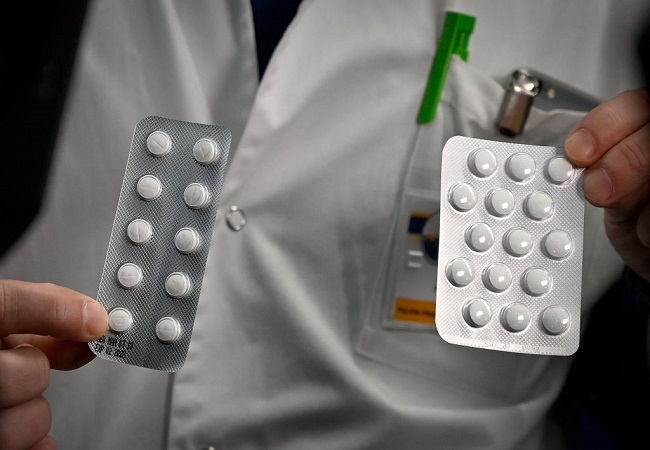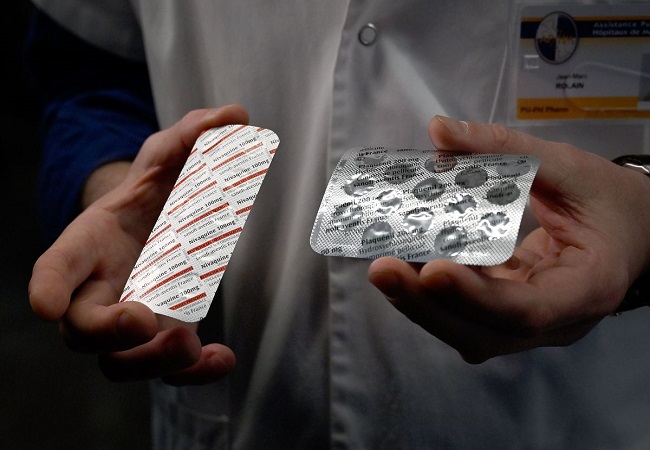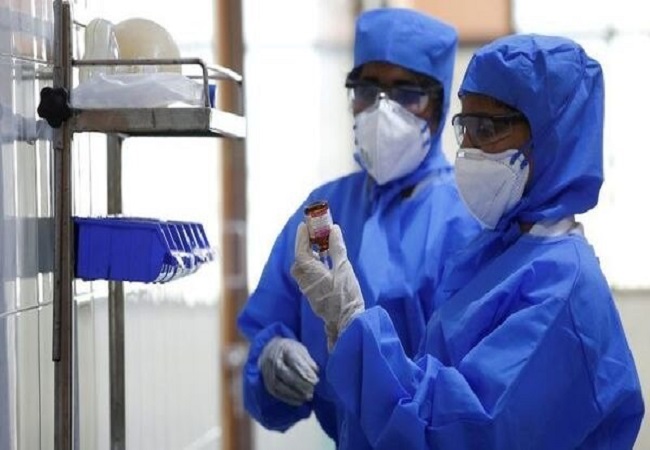
Hydroxychloroquine and Azithromycin in COVID 19 should be immediately approved for COVID treatment
— By Dr KK Aggarwal
Hydroxychloroquine and Azithromycin in COVID 19 should be immediately approved for COVID treatment Or doctors should give as an off label use
Hydroxychloroquine (200 mg three times per day for 10 days) plus Azithromycin 500 mg once daily for ten days Both chloroquine and hydroxychloroquine have been reported to inhibit SARS-CoV-2 in vitro, although hydroxychloroquine appears to have more potent antiviral activity [1].
Chloroquine is included in treatment guidelines from China’s National Health Commission and was reportedly associated with reduced progression of disease and decreased duration of symptoms [2,3]. However, primary data supporting these claims have not been published [4].
In an open-label study of 36 patients with COVID-19, use of hydroxychloroquine (200 mg three times per day for 10 days) was associated with a higher rate of undetectable SARS-CoV-2 RNA on nasopharyngeal specimens at day 6 compared with no specific treatment (70 versus 12.5 percent) [5].
In this study, the use of azithromycin in combination with hydroxychloroquine appeared to have additional benefit, but there are methodologic concerns about the control groups for the study, and the biologic basis for using azithromycin in this setting is unclear.
Despite the limited clinical data, given the relative safety of short-term use of hydroxychloroquine (with or without azithromycin), the lack of known effective interventions, and the in vitro antiviral activity, some clinicians think it is reasonable to use one or both of these agents in hospitalized patients with severe or risk for severe infection, particularly if they are not eligible for other clinical trials.
- Yao X, Ye F, Zhang M, et al. In Vitro Antiviral Activity and Projection of Optimized Dosing Design of Hydroxychloroquine for the Treatment of Severe Acute Respiratory Syndrome Coronavirus 2 (SARS-CoV-2). Clin Infect Dis 2020.
- Gao J, Tian Z, Yang X. Breakthrough: Chloroquine phosphate has shown apparent efficacy in treatment of COVID-19 associated pneumonia in clinical studies. Biosci Trends 2020; 14:72.
- Colson P, Rolain JM, Lagier JC, et al. Chloroquine and hydroxychloroquine as available weapons to fight COVID-19. Int J Antimicrob Agents 2020; :105932.
- Cortegiani A, Ingoglia G, Ippolito M, et al. A systematic review on the efficacy and safety of chloroquine for the treatment of COVID-19. J Crit Care 2020.
- Gautret et al. (2020) Hydroxychloroquine and azithromycin as a treatment of COVID‐19: results of an open‐label non‐randomized clinical trial. International Journal of Antimicrobial Agents – In Press 17 March 2020 DOI:10.1016/j.ijantimicag.2020.105949.
The Marseille Study
The European Union Clinical Trials Register shows that the Marseille study was accepted on 5th March by the National Medicines Safety Agency (ANSM). It could include up to 25 COVID-19 positive patients, comprising five aged 12–17 years, 10 aged 18–64 years, and 10 more aged 65 years or over.
The unblinded study showed a strong reduction in viral load with hydroxychloroquine.
After 6 days, the percentage of patients testing positive for COVID-19 who received hydroxychloroquine fell to 25% versus 90% for those who did not receive the treatment (a group of untreated COVID-19 patients from Nice and Avignon).
In addition, comparing untreated patients, those receiving hydroxychloroquine and those given hydroxychloroquine plus the antibiotic azithromycin, the results showed there was “a spectacular reduction in the number of positive cases” with the combination therapy.
At 6 days, among patients given combination therapy, the percentage of cases still carrying SRAS-CoV-2 was no more than 5%.
Azithromycin was added because it is known to be effective against complications from bacterial lung disease but also because it has been shown to be effective in the laboratory against a large number of viruses, the infectious disease specialist explained.
More detailed results of the study have been submitted for publication in the International Journal of Antimicrobial Agents.
Christian Perronne, head of infectious diseases, University Hospital Raymond Poincaré, Garches, Paris
“I really believe in hydroxychloroquine. It is a drug I find rather fascinating, that has been used for decades. There have been positive results in an in vitro study and a preliminary Chinese study in 100 patients which showed that hydroxychloroquine reduced the viral load, the symptoms lasted for less time, and they are not as severe. This could reduce the number of carriers, which I find interesting from an epidemiological perspective.
“I think from an ethical point of view, we should suggest it to all patients with severe disease who are hospitalised, under surveillance and on short treatment, paying attention to drug interactions, especially with drugs that prolong the QT interval.
Afterwards, in terms of adverse effects, at increased doses, it is possible that patients will have pain or fever, but it seems that the treatment is effective at lower doses, according to the Chinese data. In any case, the adverse effects of this compound are not dangerous.”
((The writer is President, CMAAO, HCFI and Past national President IMA))








